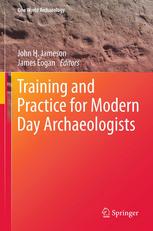

Most ebook files are in PDF format, so you can easily read them using various software such as Foxit Reader or directly on the Google Chrome browser.
Some ebook files are released by publishers in other formats such as .awz, .mobi, .epub, .fb2, etc. You may need to install specific software to read these formats on mobile/PC, such as Calibre.
Please read the tutorial at this link: https://ebookbell.com/faq
We offer FREE conversion to the popular formats you request; however, this may take some time. Therefore, right after payment, please email us, and we will try to provide the service as quickly as possible.
For some exceptional file formats or broken links (if any), please refrain from opening any disputes. Instead, email us first, and we will try to assist within a maximum of 6 hours.
EbookBell Team

5.0
88 reviewsIn recent years, an important and encouraging development in the practice of archaeology and historical preservation has been the markedly increased number of collaborations among archaeologists, educators, preservation planners, and government managers to explore new approaches to archaeological and heritage education and training to accommodate globalization and the realities of the 21st century worldwide.
But what is the collective experience of archaeologists and cultural heritage specialists in these arenas? Should we be encouraged, or discouraged, by national and international trends? In an attempt to answer these questions, this volume examines and gives representational examples of the respective approaches and roles of government, universities, and the private sector in meeting the educational/training needs and challenges of practicing archaeologists today.